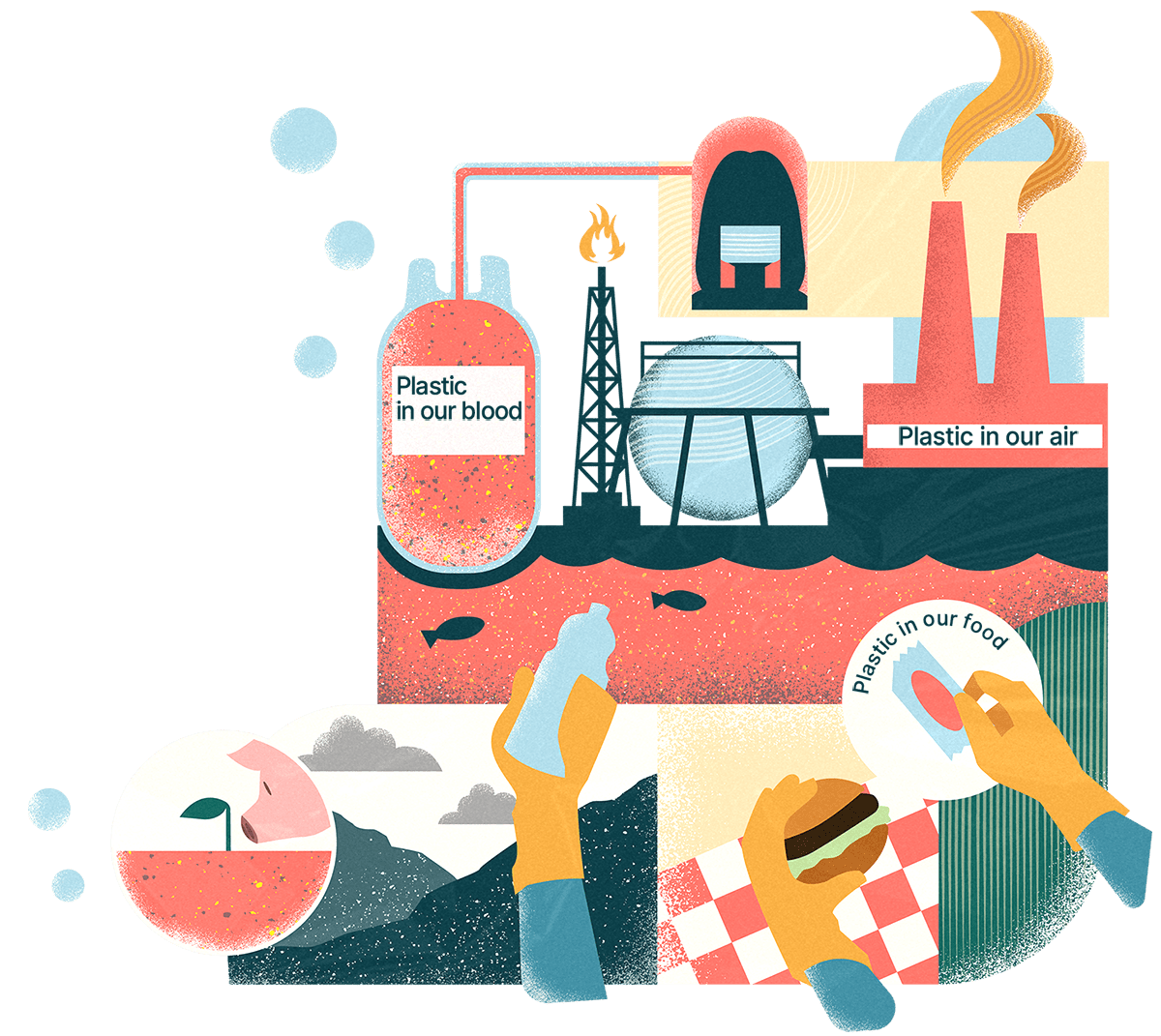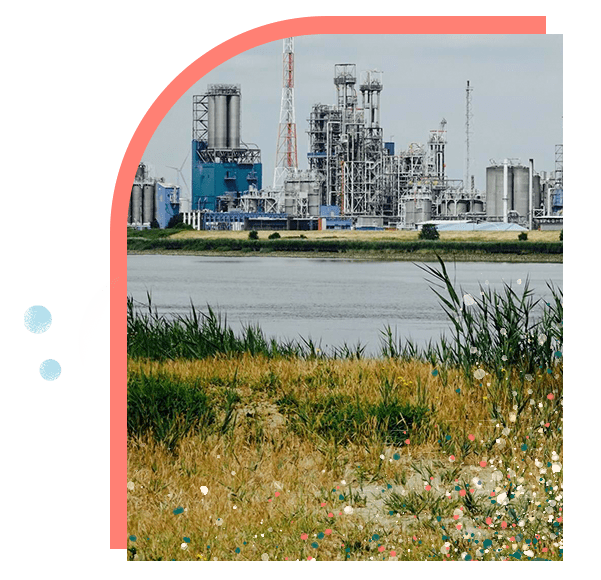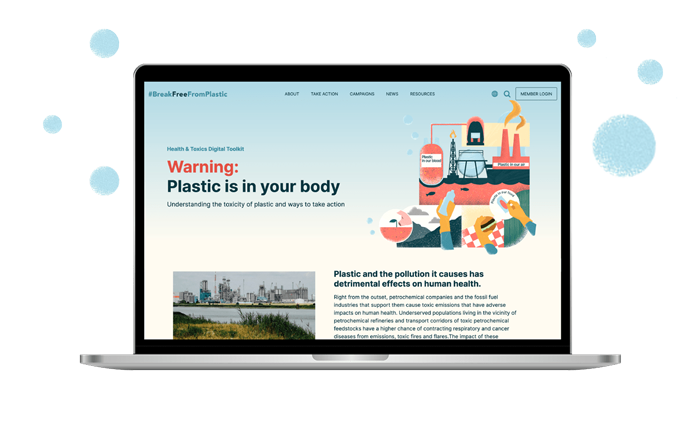Read updates on the fifth round of negotiations for Plastics Treaty ➝
Protect our planet! Last chance to join the call for a strong Plastics Treaty. SIGN THE PETITION NOW.


Right from the outset, petrochemical companies and the fossil fuel industries that support them cause toxic emissions that have adverse impacts on human health. Underserved populations living in the vicinity of petrochemical refineries and transport corridors of toxic petrochemical feedstocks have a higher chance of contracting respiratory and cancer diseases from emissions, toxic fires and flares.The impact of these hazardous plastic particles and toxic chemicals on human health has begun way before the material has even been put to use.
At the stage of disposal and waste management plastic pollution continues to seep into the environment. As a result waste workers, in particular, suffer the health consequences of being in close contact with burning plastic. Their exposure to plastic pollution is further increased by having to breathe air and drink water contaminated with microplastics. Plastic recycling workers also have increased rates of cardiovascular disease, toxic metal poisoning, neuropathy, and lung cancer.
Exposure to plastic pollution affects everyone. But persons living in poverty, people of color, Indigenous peoples, rural communities, and fenceline and environmental justice communities, and populations in the Global South, bear the uneven health costs of plastic production, use and disposal.
a message pushed by industries connected to or profiting from plastic production, particularly during the Covid-19 pandemic. We need to listen to global health researchers and frontline communities who have revealed the true toxic impacts of plastics on health.

Plastics are in our bodies. When plastics end up in the environment (ocean, land, air, fresh waterways) they break up into particles and the toxic chemicals they contain enter ecosystems and human food chains where they accumulate and remain for prolonged periods of time. Microplastics have been found in human blood, lungs, organs, placentas, and breast milk.
Plastic producers and the fossil fuel industry, aided by government subsidies and other forms of support, have put the responsibility of solving the problem on individual behavior change. This tactic has enabled business as usual with continued production, pollution and exploitation of communities most impacted by plastics and fossil fuels.
In 2023, the Global Plastics Treaty negotiations are entering the next phase. The #BreakFreeFromPlastic movement and global health researchers and organizations from around the world have an opportunity to push for a treaty that protects human health from the full range of toxic impacts caused by plastic production, transportation, use, and disposal.
As international negotiations progress to implementation of national action plans, the Global Plastics Treaty provides a unique opportunity for governments to hold the fossil fuel and plastics industry to account for the harm they cause to human health.